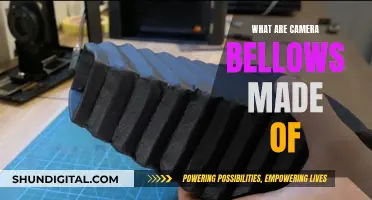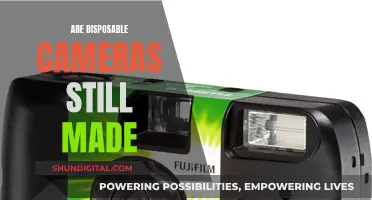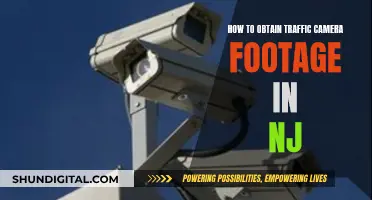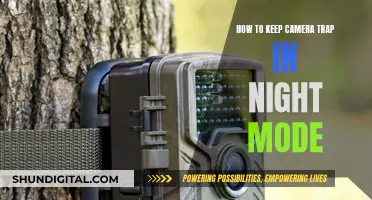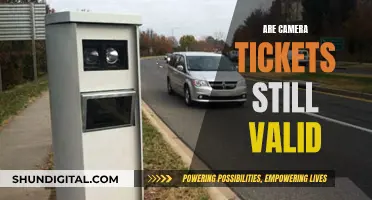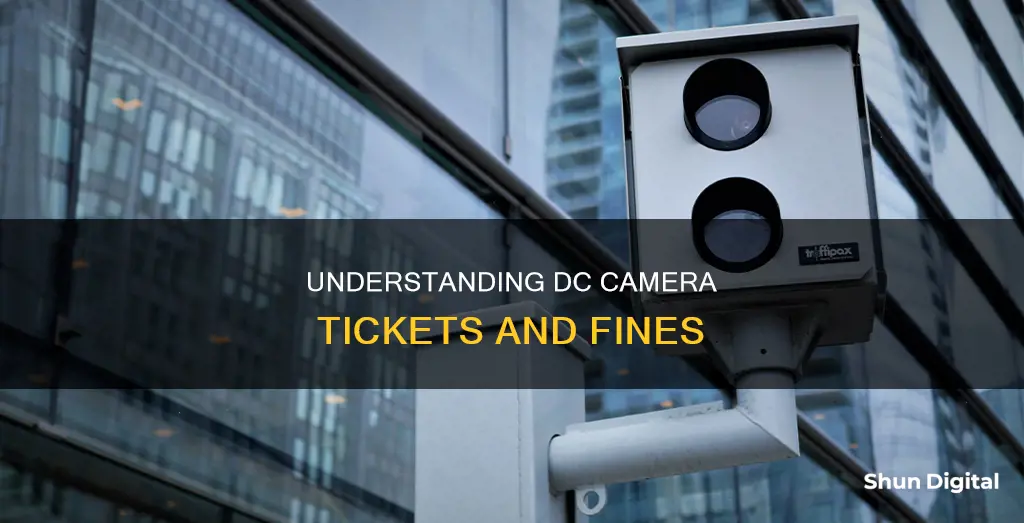
If you've received a camera ticket in Washington, DC, you may be wondering if you need to pay it, especially if you're not a DC resident. While it's important to consider the potential consequences of not paying a traffic ticket, the enforceability of camera tickets varies depending on your location and the issuing authority. In the case of DC, the city has struggled to collect payments for traffic camera tickets, particularly from non-residents. While there's a risk of repercussions, some sources suggest that DC doesn't have reciprocity agreements in place with other states to enforce these tickets outside of the city. However, it's important to note that not paying any type of ticket may result in penalties, and DC does have the power to boot or tow vehicles with outstanding tickets. Ultimately, the decision to pay or contest a camera ticket is yours, but understanding the potential risks and your options can help guide your choice.
| Characteristics | Values |
|---|---|
| Issuing Authorities | DC Department of Public Works, District Department of Transportation, Metropolitan Police Department, US Capitol Police, US Park Police |
| Ticket Payment Options | DC DMV Mobile App, In-Person at Adjudication Services Center, By Mail, By Phone |
| Payment Methods | Cash, Check, Money Order, Credit Card (Visa, Mastercard, Discover, American Express) |
| Non-Payment Consequences | Vehicle Booting and Towing, Default Judgment, Sent to Collections |
| Ticket Types | Parking, Photo Enforcement, Minor Moving Violations |
| Ticket Timeline | 30 Calendar Days to Pay without Penalty |
| Reciprocity Agreements | None with Maryland or Virginia for Camera Tickets |
What You'll Learn

Contesting a ticket
If you believe a ticket was issued to you wrongly, you may contest it and request a dismissal. However, if you decide to contest a ticket, do not pay the fine or penalty. Once a ticket is paid, you are no longer able to contest it.
To contest a ticket, you must provide the DC DMV with all the information and documentation that supports your reasons for contesting. You can contest a ticket online, by mail, or in person within 60 calendar days. If you contest the ticket between 31 and 60 calendar days after it is issued, or mailed, in the case of photo enforcement tickets, you are liable for both the fine and penalty.
If the ticket is more than 60 calendar days old, you may ask DC DMV whether or not you may still contest the ticket by filing what is called a Motion to Vacate. The Motion to Vacate form must be received by DC DMV within 120 calendar days from the ticket’s issue date (for parking tickets) or mail date (for photo enforcement tickets).
If you want to contest a parking ticket, there are certain defences you can offer. District of Columbia law (Official Code Section 50-2303.5 (a) (2)) provides seven defences for parking violations:
- You were not the owner or lessee of the cited vehicle at the time of the infraction
- The cited vehicle or its state registration plates were stolen at the time of the violation
- The relevant signs prohibiting or restricting parking were missing or obscured
- The relevant parking meter was inoperable or malfunctioned through no fault of the person who received the ticket
- The facts alleged on the parking violation notice are inconsistent or do not support a finding that the specified regulation was violated
- The vehicle was suddenly mechanically disabled; provided that the vehicle was removed as soon as practicable
- The operator suddenly needed immediate medical assistance (proof of medical attention required)
Your parking ticket can be dismissed only if one of these seven defences is successfully raised. You should provide evidence to support your defence at the time of your hearing or when you submit your online or mail request. Please note that hard copies of documents are required.
Curiosity Rover's Camera Origins: A Technical Marvel
You may want to see also

Ticket payment options
If you have received a camera ticket in Washington, DC, you have several options for payment. Firstly, it is important to note that if you are planning to contest a ticket, do not pay the fine. Once a ticket is paid, you will no longer be able to contest it.
The DC Department of Motor Vehicles (DC DMV) provides several ways to pay your ticket:
- DC DMV Mobile App: You can use the official mobile app to pay your ticket.
- In-Person at Adjudication Services Center: You can pay your ticket in person at the Adjudication Service Center. The address is Adjudication Services, 955 L'Enfant Plaza, SW Promenade Level – Suite P100, Washington, DC 20024. Remember to bring your ticket with you when visiting the service center.
- By Mail: If you choose to pay by mail, do not send cash. You must send a check or money order, payable to the DC Treasurer. Write the ticket number in the memo line of your check or, if you do not have your ticket, write the ticketed vehicle's state and tag number (e.g., MD license tag #123456). If you have multiple outstanding tickets and do not specify the ticket number, the payment will be applied to the oldest ticket first. Send your payment to Adjudication Services, PO Box 2014, Washington, DC 20013.
- By Phone: You can pay tickets by calling (866) 893-5023.
- Online: You can pay your ticket online using your ticket number and a credit card. The DC government accepts Mastercard, Visa, Discover, and American Express. Note that if you pay by credit card and then reverse the payment, the ticket may be sent to collections, and you will not be able to use a credit or debit card for future payments.
Important Considerations:
- Timeliness: Ensure you pay your ticket within 30 calendar days from the date the ticket was issued or mailed (in the case of a photo ticket). After this period, a penalty equal to the fine will be assessed.
- Booted or Towed Vehicle: If your vehicle has been booted or towed, you must pay your outstanding tickets to get the boot released. The DC DMV does not accept checks for the release of booted or towed vehicles. You can pay the ticket and boot fees online or in person at the Adjudication Services Center.
iCloud Cameras Stuck in Night Mode: Here's Why
You may want to see also

Tickets and driver's licenses
If you receive a ticket, you have several options for how to respond. You can choose to pay the ticket, or you can contest it. If you decide to pay the ticket, you can do so online, by mail, by phone, or in person. If you pay by mail, send a check or money order—do not send cash. If you have a ticket for a booted or towed vehicle, you must pay in person and cannot pay by check.
If you decide to contest a ticket, do not pay the fine or penalty. Once a ticket is paid, you can no longer contest it. You can contest a ticket by submitting a request to the Department of Motor Vehicles (DMV). The DMV can help you with parking, photo enforcement, and minor moving violation tickets. Tickets are issued by the DC Department of Public Works, the District Department of Transportation, and law enforcement agencies including the Metropolitan Police Department, US Capitol Police, US Park Police, and more than 30 other agencies.
If you do not pay a ticket, there may be repercussions. In some places, such as Kansas, a driver's license can be suspended for unpaid traffic tickets. This can result in a cycle where people drive illegally to get to work, rack up more tickets, and face increasing debt and revoked licenses. In other cases, the courts may send unpaid fines to debt collectors, who will add interest to the original fines.
In some places, there are agreements in place to enforce tickets across borders, but this is not always the case. For example, in a discussion about Washington DC speeding tickets, a Reddit user claimed that "there are no reciprocity agreements to enforce camera tickets cross-border. For non-camera tickets, those are enforceable."
The Power of Battery Grips: Enhancing Your Camera's Performance
You may want to see also

Tickets and vehicle registration
If you receive a parking, photo enforcement, or minor moving violation ticket in Washington, DC, you have several options to respond. Firstly, you should understand the ticket timeline. You can then choose to contest a photo or parking ticket, or contest a minor moving violation ticket. You can also check the status of your adjudication request. Registering for the ticket alert service will notify you of any tickets issued to your vehicle, along with hearing decisions and other ticket-related information.
If you decide to pay the ticket, you can do so through the DC DMV Mobile App, in person at the Adjudication Services Center, or by mail. If paying by mail, do not send cash. You must mail a check or money order, payable to the DC Treasurer, and write the ticket number on the memo line. If you do not have your ticket, write the ticketed vehicle's state and tag number on your check or money order. If you have multiple outstanding tickets and do not provide the ticket number, the payment will be applied to the oldest ticket first.
If you do not pay your ticket within 30 calendar days from the date it was issued, a penalty equal to the fine will be assessed. If your vehicle has been booted or towed, you must pay your outstanding tickets to get the boot released. You can pay these fees online or in person at the Adjudication Service Center.
It is important to note that if you plan to contest a ticket, you should not pay the fine or penalty. Once a ticket is paid, you can no longer contest it.
Numbering Images in Camera Raw: A Beginner's Guide
You may want to see also

Tickets and insurance companies
The impact of a ticket on your insurance depends on the type of ticket, the insurance company, and the state in which you live. In general, traffic tickets can lead to steep penalties in insurance costs, as drivers with recent tickets are considered higher-risk and more likely to file insurance claims. For example, a single traffic ticket can raise insurance costs by as much as 82% in some states. The average increase in insurance premiums due to a speeding ticket is $385 per year, but this can vary depending on the state and the severity of the violation. For instance, in Pennsylvania, a speeding ticket may result in a 13% increase in insurance rates, while in North Carolina, the same offense can lead to a 48% increase.
In addition to the financial impact, traffic tickets can also affect your ability to find cheap insurance. Insurance companies may consider you a high-risk driver with a history of moving violations or accidents, making it challenging to obtain affordable coverage. It's important to note that insurance companies typically consider violations on your record for three years, and certain activities like a DUI in California can impact rates for up to ten years.
To mitigate the impact of a ticket on your insurance, consider exploring new coverage options, raising your deductibles, and being selective about filing claims. Additionally, taking a driver safety course accepted by your insurer may help lower your insurance rate.
When it comes to DC-specific information, there is limited data available regarding insurance companies and tickets. However, it is important to note that the District of Columbia Department of Motor Vehicles (DC DMV) is the agency through which you can contest parking, photo enforcement, and minor moving violation tickets. The DC DMV also accepts ticket payments.
Where to Find Adobe Camera Raw
You may want to see also
Frequently asked questions
Yes, you do have to pay it. While there are no reciprocity agreements to enforce camera tickets across state borders, you could face repercussions in DC, including having your car booted or towed, and there's always the possibility that DC sends the unpaid ticket to collections.
If you don't pay a DC camera ticket, the fine will double and a 20% collection fee will be applied. DC's options for repercussions are limited to vehicle booting and towing on public roads, but there's always the possibility that DC sends the unpaid ticket to collections.
You can pay a DC camera ticket by using the DC DMV Mobile App, in person at the Adjudication Services Center, or by mail. If you pay by mail, do not send cash. You must mail a check or money order, payable to the DC Treasurer, and write the ticket number in the memo line.


